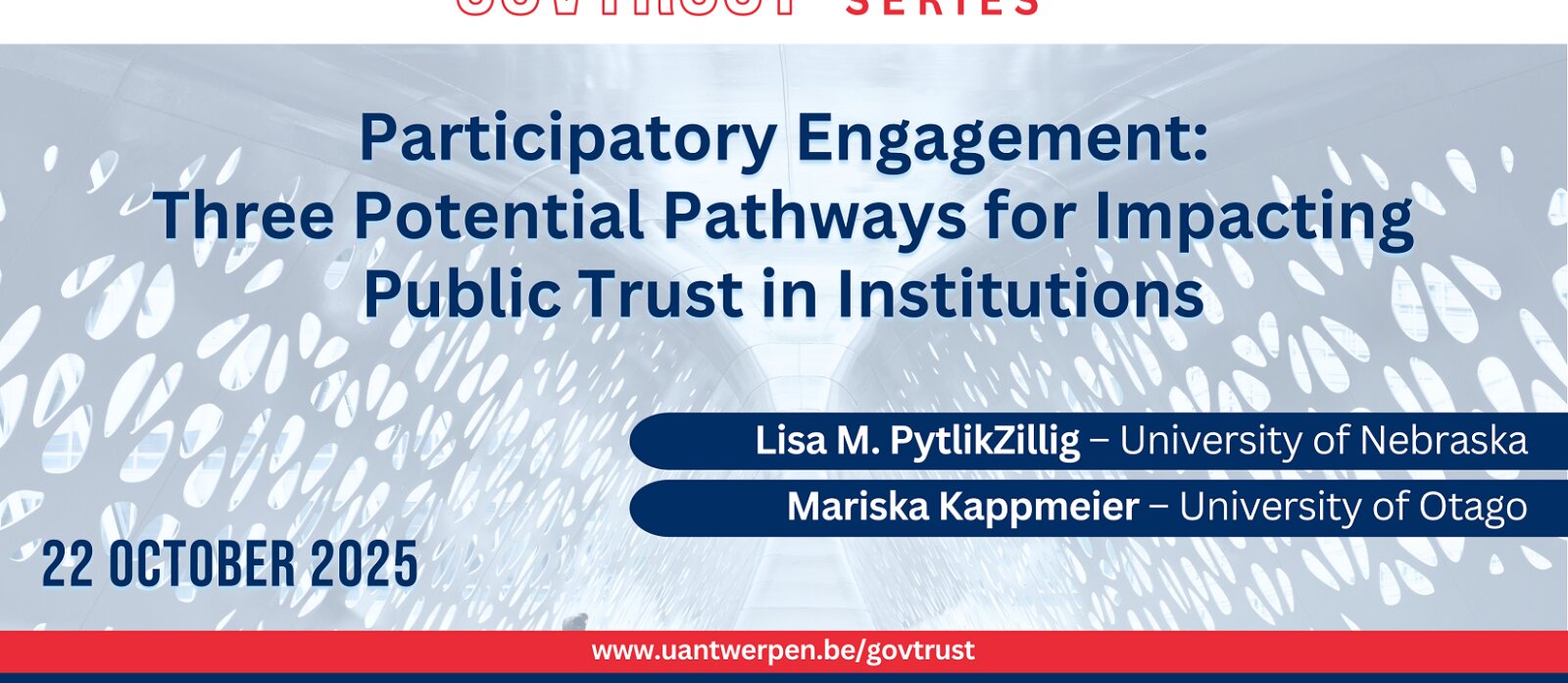Wednesday, 22 October 2025, 9:00-10:00 CET
Join us for an insightful conversation with Lisa M. PytlikZillig and Mariska Kappmeier as they present ideas from their chapter, Participatory Engagement: Three Potential Pathways for Impacting Public Trust in Institutions, featured in the recently published Handbook on Trust in Public Governance (Edward Elgar Publishing, 2025).
In this webinar, Lisa M. PytlikZillig (University of Nebraska) and Mariska Kappmeier (University of Otago) will present insights from Chapter 19 of the Handbook on Trust in Public Governance: "Participatory Engagement: Three Potential Pathways for Impacting Public Trust in Institutions". They will share whether and how efforts to involve citizens in decision-making can strengthen institutional trust. They propose three pathways through which participatory engagement may build trust: (1) changing public perceptions, (2) improving institutions/organisations, and/or (3) empowering citizens. At the same time, they consider arguments made against the use of public engagement to build public trust.
What you'll gain from this webinar:
- Learn how participatory practices can foster (or hinder) institutional and political trust.
- Understand the three causal pathways by which engagement may affect trust.
- Gain insights into both the promises and pitfalls of engagement strategies.
- A chance to engage with others interested in public governance and trust
Find out more about the Edward Elgar Handbook on Trust in Public Governance.
Webinar programme
- 9:00 | Welcome and introduction by Koen Verhoest, editor of the Handbook on Trust in Public Governance and coordinator of the GOVTRUST Centre of Excellence (University of Antwerp, )
- 9:10 | Takeaways from the chapter "Participatory engagement: three potential pathways for impacting public trust in institutions" by Lisa M. PytlikZillig (University of Nebraska Public Policy Centre, Nebraska, USA) and Mariska Kappmeier (University of Otago, New Zealand)
- 9:40 | Q&A
Speaker bio
- Lisa M. PytlikZillig, PhD, is a Research Associate Professor and Senior Research Manager at the University of Nebraska Public Policy Centre in Lincoln, Nebraska, USA. She completed her PhD in social/personality psychology and post-doctoral studies in Educational Psychology, both at the University of Nebraska-Lincoln (UNL). Her current research primarily focuses on public engagement, trust in institutions, and conflict resolution. She has conducted applied research and evaluation studies pertaining to trust and public engagement in the areas of natural resources, sustainability, and climate resilience; new technologies (e.g., nanotechnology, unmanned vehicles); and the courts and alternative dispute resolution. She also seeks to promote trustworthy institutions by serving as a faculty ombuds.
- Mariska Kappmeier, PhD, is a trust scholar and researcher in the Psychology Department at the University of Otago in New Zealand. She received her PhD in Psychology from the University of Hamburg, Germany, and completed her post-doctoral tenure in the Psychology Department of Harvard University, USA. Her research focuses on intergroup trust and trust building, collective memories, interfaith relations, and trust between institutions and diverse communities. She developed the Intergroup Trust Model, which conceptualises intergroup trust as a multidimensional construct and provides a solid basis for understanding how trust between groups can be built or eroded.
Practical information
- Date & time – Wednesday, 22 October 2025, 9:00-10:00 CET Brussels (2:00 am Nebraska; 8:00 pm Dunedin, New Zealand)
- Venue – Online, via the Microsoft Teams platform.
- Recording available below
- Register for future webinar updates – Register here to receive updates on the GOVTRUST Webinar Series.
Webinar recording
